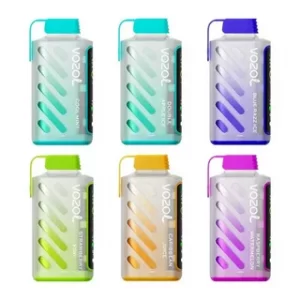Why Insulated Composite Panels Are the Key to Enhancing Energy Efficiency in RV Construction

As the demand for energy-efficient solutions continues to rise, RV manufacturers and owners are increasingly looking for materials that improve the insulation and overall performance of recreational vehicles. One such solution that stands out is the use of insulated composite panels. These panels offer superior insulation properties, strength, and durability, making them an ideal choice for RV construction. In this article, we will explore why insulated composite panels are essential for enhancing energy efficiency in RVs, ensuring comfort and reliability for all your adventures on the road.
Insulated composite panels, often referred to as “sandwich panels,” are composed of an insulating core material sandwiched between two durable outer layers. The insulating core is typically made of foam or other thermal-resistant materials, while the outer layers are crafted from materials such as fiberglass or aluminum. This unique design allows for better thermal insulation while maintaining the structural integrity of the RV. For more information on how these panels contribute to RV construction, you can learn more about Insulated Composite Panels RV.
1. Superior Thermal Insulation
One of the primary benefits of insulated composite panels in RV construction is their ability to provide excellent thermal insulation. The insulating core material within the panels helps prevent heat from entering or escaping the RV, which is particularly important in maintaining a comfortable temperature inside the vehicle. Whether you’re traveling through hot summer days or freezing winter nights, these panels keep the interior temperature stable without relying heavily on air conditioning or heating systems.
The superior insulation properties of these panels help reduce the amount of energy required to regulate the temperature inside the RV, improving overall energy efficiency. This means that you can enjoy a comfortable living space without constantly running energy-draining systems. As a result, the use of insulated composite panels can lead to significant energy savings in the long run.
2. Energy Efficiency and Fuel Savings
Since insulated composite panels help maintain a stable internal temperature, RVs built with these panels require less energy to heat or cool. This can lead to substantial fuel savings, as the vehicle does not need to work as hard to maintain a comfortable environment inside. For RV owners who spend extended periods on the road or off-grid, this energy efficiency is a game-changer, as it reduces the need for generator usage or frequent stops to recharge the RV’s power supply.
The reduction in energy consumption also contributes to a smaller carbon footprint, which is a significant consideration for eco-conscious RV owners. With rising fuel prices and growing concerns about the environment, making the switch to insulated composite panels is a sustainable choice that can benefit both your wallet and the planet.
3. Improved Comfort in All Seasons
Another key advantage of insulated composite panels is their ability to enhance comfort across various climates. Traditional RVs often struggle to maintain a comfortable temperature, especially when exposed to extreme temperatures. In contrast, RVs built with insulated composite panels can provide a more stable and consistent interior climate, regardless of the weather outside.
In the summer months, the insulation helps keep the interior cooler by blocking the heat from the sun, while in winter, it traps warmth inside, ensuring that the RV stays cozy without excessive heating. This means you can travel comfortably in any season, whether you’re exploring the desert heat or venturing into snowy mountains. Insulated composite panels significantly reduce temperature fluctuations inside the RV, allowing for a better overall living experience.
4. Lightweight Construction and Strength
Insulated composite panels are not only excellent at providing insulation but also contribute to the overall strength and lightweight construction of the RV. The materials used in these panels—such as fiberglass and aluminum—are known for their durability and resistance to environmental factors like moisture, UV rays, and corrosion. This makes the panels ideal for protecting the RV from the elements, ensuring that the vehicle remains strong and resistant to wear and tear over time.
At the same time, the lightweight nature of the panels helps reduce the overall weight of the RV, which can improve fuel efficiency and ease of handling. Since weight plays a crucial role in a vehicle’s performance, the lightweight yet strong design of insulated composite panels makes them an ideal choice for RV construction. The combination of durability and lightweight construction allows RV owners to enjoy a safer, more fuel-efficient, and long-lasting vehicle.
5. Enhanced Durability and Resistance to Moisture
RVs are exposed to various environmental factors, such as rain, snow, and humidity, which can lead to mold, mildew, and other forms of deterioration. Insulated composite panels help mitigate these issues by providing a strong, moisture-resistant barrier. The outer layers of the panels are typically resistant to water absorption, preventing moisture from entering the RV’s structure and causing damage.
The moisture-resistant properties of these panels also make them ideal for use in areas with high humidity or where rain is frequent. This ensures that the RV remains in good condition even in challenging environments. With insulated composite panels, RV owners can enjoy peace of mind knowing that their vehicle will stand up to the elements for years to come.
6. Soundproofing Benefits
Insulated composite panels also provide an added benefit of soundproofing. The insulating core material helps reduce noise transmission from the outside, which is especially beneficial when traveling on busy highways or camping near noisy areas. The soundproofing effect helps create a quieter and more relaxing interior, allowing RV occupants to enjoy a peaceful environment no matter where they are.
Whether you’re parked in a busy campground or on the road, the noise reduction offered by these panels ensures that you can rest, sleep, and enjoy your time inside the RV without distractions from external noise. The soundproofing properties of insulated composite panels contribute to a more comfortable and enjoyable experience, making long trips much more pleasant.
7. Sustainability and Eco-Friendly Design
As environmental awareness grows, more RV manufacturers and owners are looking for sustainable materials that minimize their ecological footprint. Insulated composite panels are made from materials that are durable, long-lasting, and recyclable, making them an eco-friendly option for RV construction. The energy efficiency provided by these panels also reduces the overall carbon footprint of the RV, as it lowers energy consumption and reduces the need for frequent maintenance.
By opting for insulated composite panels, RV owners can enjoy the benefits of a sustainable, energy-efficient, and long-lasting vehicle that is both environmentally friendly and cost-effective.
Conclusion
Insulated composite panels play a vital role in enhancing the energy efficiency and overall performance of RVs. Their superior thermal insulation properties, combined with their lightweight construction, durability, and resistance to moisture, make them the ideal choice for modern RV construction. These panels provide a more comfortable, energy-efficient, and long-lasting solution for RV owners, ensuring a superior travel experience in all seasons. Whether you’re a seasoned traveler or a first-time RV owner, choosing insulated composite panels will help you enjoy a more comfortable and sustainable journey.




